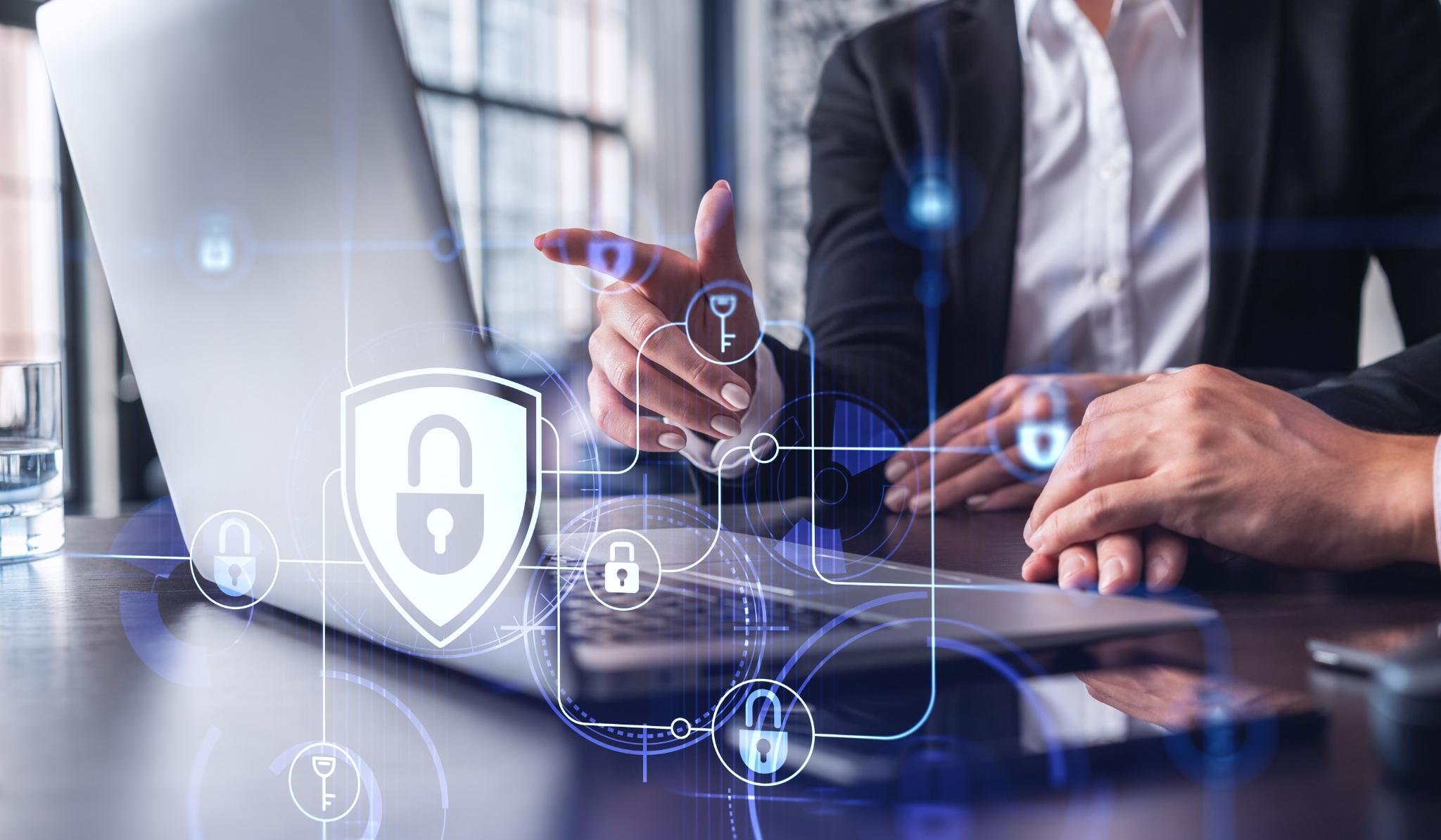The Biggest Cybersecurity Threats SMEs Face in 2025: Updated
Back in the early 2010s, many cybersecurity headlines centred on brute-force attacks, simple malware, or unpatched server flaws. SMEs often thought,...
Remote work has become a permanent fixture for many organisations, bringing both flexibility and convenience. However, it also opens new vulnerabilities for cyberattacks, making cybersecurity more critical than ever before. At Fitzrovia IT, we understand the unique challenges faced by remote workers, and during Cybersecurity Awareness Month, we're committed to helping individuals and businesses stay secure in this evolving digital landscape.
Whether you’re a remote worker yourself or managing a distributed team, here are the top 10 cybersecurity tips to protect sensitive data, safeguard your devices, and ensure your work environment is secure.
When working remotely, especially from public or unsecured Wi-Fi networks, using a Virtual Private Network (VPN) is essential. A VPN encrypts your internet connection, ensuring that your online activities remain private and secure from prying eyes.
Tip: Ensure that your company provides a robust VPN solution or consider using a reputable third-party provider with strong encryption standards.
Passwords alone aren’t enough to secure accounts. With the growing number of phishing attacks, it’s critical to add an extra layer of protection by enabling multi-factor authentication (MFA). MFA requires users to provide two or more verification factors to gain access to a system or account, making it much harder for cybercriminals to breach your accounts.
Tip: Implement MFA wherever possible, especially for email, cloud storage, and remote access platforms like Microsoft 365 or VPN logins.
Outdated software is one of the easiest entry points for hackers. Software updates often contain patches that fix security vulnerabilities, so keeping everything from your operating system to applications up to date is vital.
Tip: Enable automatic updates for operating systems and critical applications. If that’s not possible, set a reminder to check for updates weekly.
A common mistake is reusing the same password across multiple platforms. If one account is compromised, it can give hackers access to several others. Strong passwords should be at least 12 characters long and include upper and lowercase letters, numbers, and special characters.
Tip: Use a password manager to securely store and generate strong, unique passwords for all your accounts. This reduces the burden of remembering them and makes it easy to stay secure.
Home networks can be as vulnerable as public ones if not properly secured. An insecure Wi-Fi network can be an open door for hackers to access sensitive company information.
Tip: Ensure your router’s default password is changed to something secure and that your Wi-Fi is encrypted with WPA3 (Wi-Fi Protected Access 3). Also, consider setting up a separate Wi-Fi network for work purposes.
Phishing attacks are becoming more sophisticated, with hackers impersonating trusted sources to steal personal information or infect devices with malware. Whether through email, text, or even phone calls, phishing attacks are designed to manipulate you into clicking malicious links or downloading harmful attachments.
Tip: Always verify the authenticity of unexpected messages, especially those requesting sensitive information or immediate action. Look for telltale signs like misspellings, suspicious links, or email addresses that don’t match official domains.
Remote workers often use a combination of personal and work devices, increasing the risk of data breaches. Devices such as laptops, smartphones, and tablets must be properly secured to prevent unauthorised access.
Tip: Enable full-disk encryption, which scrambles data on your device and makes it unreadable without the proper credentials. Also, lock your screen whenever you step away from your devices.
Data loss can happen due to various reasons, including cyberattacks, hardware failure, or human error. Regularly backing up your files ensures that you can recover essential data if disaster strikes.
Tip: Automate backups to cloud services or external hard drives and ensure that these backups are also secure (i.e., encrypted and password-protected).
Blurring the lines between work and personal activities on the same device can create security risks. Personal activities like browsing social media, shopping, or downloading apps may expose your work device to malware and phishing attacks.
Tip: Keep work and personal activities on separate devices where possible. If you must use the same device, create separate user profiles and avoid accessing personal websites while connected to work systems or networks.
Collaboration tools like Microsoft Teams, Zoom, and Slack have become essential for remote work. However, these platforms can also present security risks if not configured properly. Cybercriminals often target popular platforms, attempting to exploit vulnerabilities in software or users.
Tip: Ensure that meetings are password-protected, and use waiting rooms to control who can enter. Only share sensitive files through secure channels, and verify that any plugins or extensions you add are from trusted sources.
Cybersecurity isn’t just the responsibility of IT departments—remote workers must play their part in protecting the company’s data and systems. By following these ten essential tips, you can ensure that your work environment is secure, no matter where you are.
At Fitzrovia IT, we specialize in providing comprehensive managed IT and cybersecurity solutions tailored to businesses of all sizes. Whether you're looking to secure your remote workforce or need support with a full-scale IT strategy, we’re here to help. Contact us today to find out more about how we can enhance your cybersecurity posture.
With over 25 years of experience in delivering cutting-edge IT solutions, Fitzrovia IT is a leading managed service provider (MSP) specialising in tailored IT support, cybersecurity, and cloud services. We pride ourselves on our proactive approach to IT, ensuring businesses are equipped with the tools and protection they need to thrive in an increasingly digital world. To discover more about how to improve your organisation’s cybersecurity, please contact us here.

Back in the early 2010s, many cybersecurity headlines centred on brute-force attacks, simple malware, or unpatched server flaws. SMEs often thought,...

The UK’s cybersecurity regulations continue to evolve as hybrid work expands, third-party risk grows, and cross-border data flows accelerate. For...